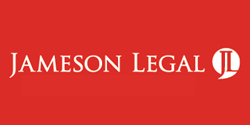The case provides clarity on section 24 appeals under the Health and Safety at Work Act 1974
Global law firm Clyde & Co has successfully defended its client, Chevron, at the Supreme Court.
In proceedings where Clyde & Co represented the respondent, the Supreme Court confirmed that a tribunal hearing an appeal against a prohibition or improvement notice under section 24 of the Health and Safety at Work etc. Act 1974 is entitled to take into account evidence that was not known (and could not reasonably have been known) to the inspector at the time he issued the notice.
Conflicting appellate decisions in England and Scotland meant that previously the scope of a section 24 appeal was uncertain. This case provides important clarity.
The question for a tribunal faced with a section 24 appeal is whether, on the facts, the notice ought to have been issued. However, on the wording of the statute it is not immediately clear whether the tribunal is only entitled to have regard to the facts which were known, or ought reasonably to have been known, to the inspector at the time he served the notice.
This was the issue which the Supreme Court had to determine. It confirmed that employers should be reassured that they no longer face the prospect of a black mark against their name in circumstances where they can demonstrate that, as a matter of fact, a prohibition notice should not have been issued in the first place.
David Reynolds, Partner at Clyde & Co, comments: "We're delighted to have successfully supported Chevron throughout these proceedings. This is an important development of law in the UK to determine what had previously been differing approaches by the English and Scottish courts to an appeal under the Health and Safety at Work Act 1974."
